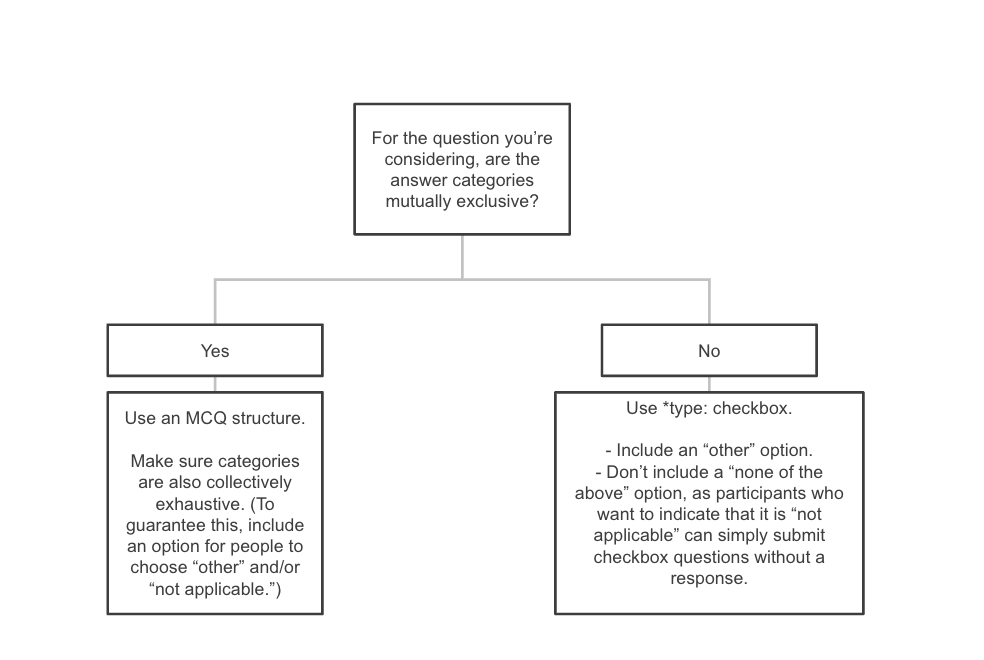How to select the type of multi-choice question that's suited to your answer options🔗
If you are including questions where participants are choosing between categories or answer options, it is worth deciding whether the answers are mutually exclusive or not. Below, we've summarized our recommendations for how you can structure your multiple-choice questions, depending on the answer to this question.

If the categories presented are mutually exclusive, and collectively exhaustive, then it may be best to use a multi-choice question setup where only one response is allowed. If the multi-choice questions can be answered with a Likert scale, we've provided tips on how to approach this in the Likert scale questions section.
If the categories are not mutually exclusive, it would be important to set the question type to "checkbox"; otherwise, participants will be forced to choose just one category, even in cases where they feel that more than one applies. For checkbox questions, the categories should again be collectively exhaustive, except that they do not need to include "none of the above" as an option (because a participant can simply submit a checkbox question without a response in cases where none of the options apply).
We recommend using the *shuffle keyword for categorical questions, unless participants would be put off by the categories not conforming to a particular order (in which case the question category is more likely going to be ordinal anyway). For good and bad examples of these kinds of questions, please see the section on randomizing your questions.
Next: Why and how to create coding variables
 GuidedTrack Docs
GuidedTrack Docs